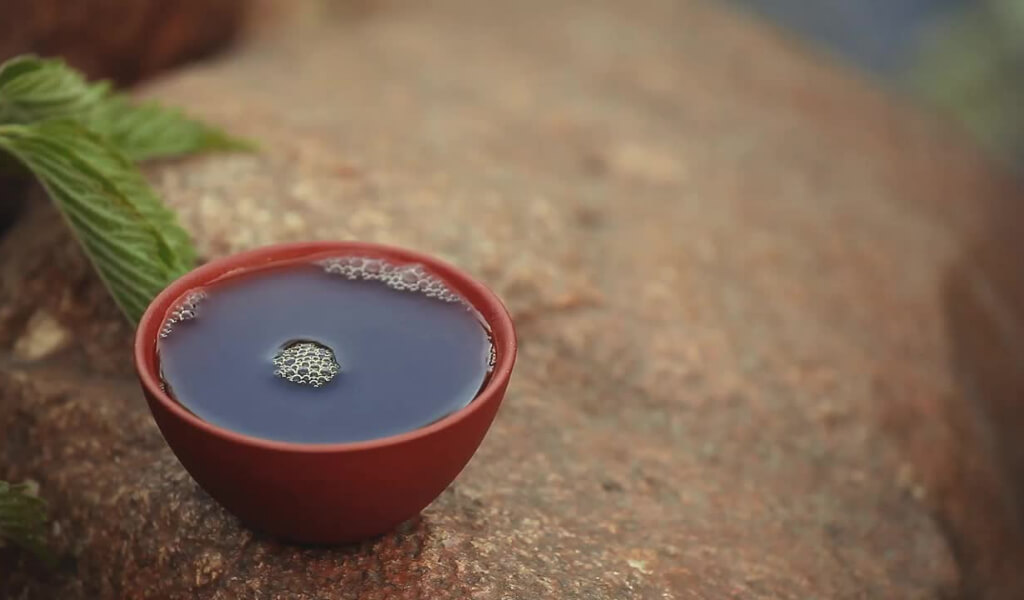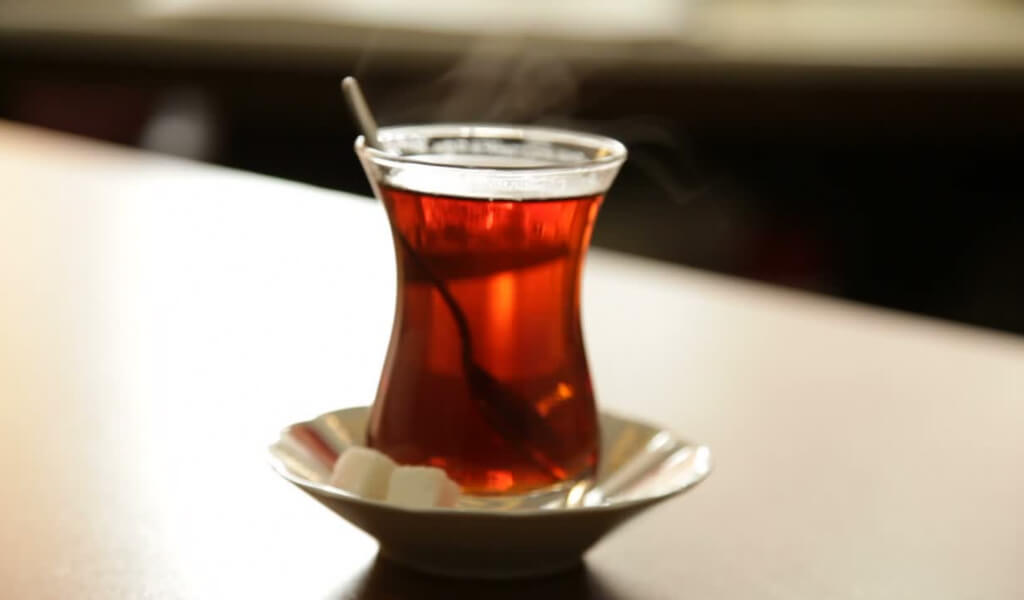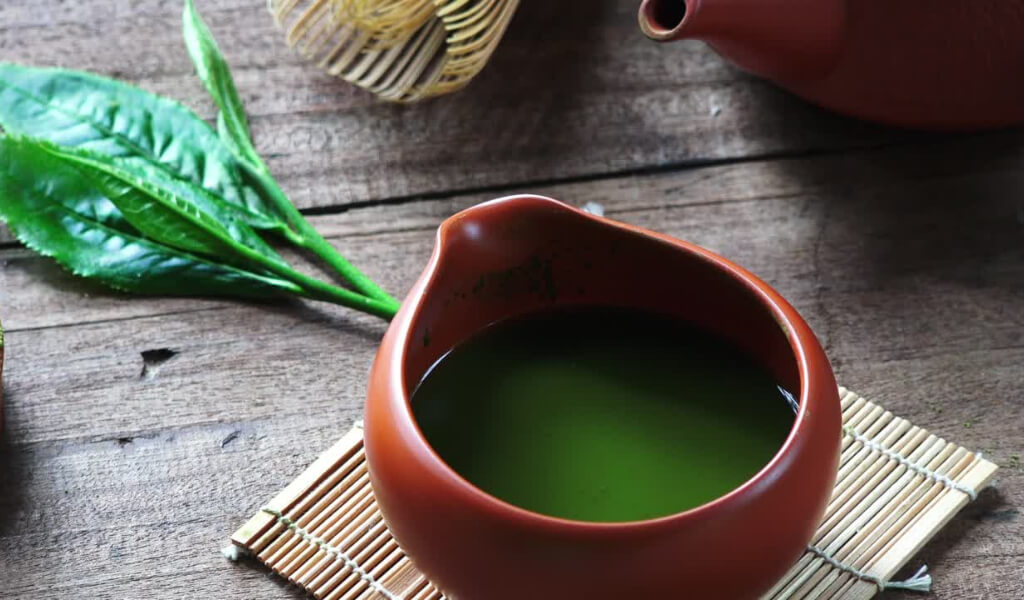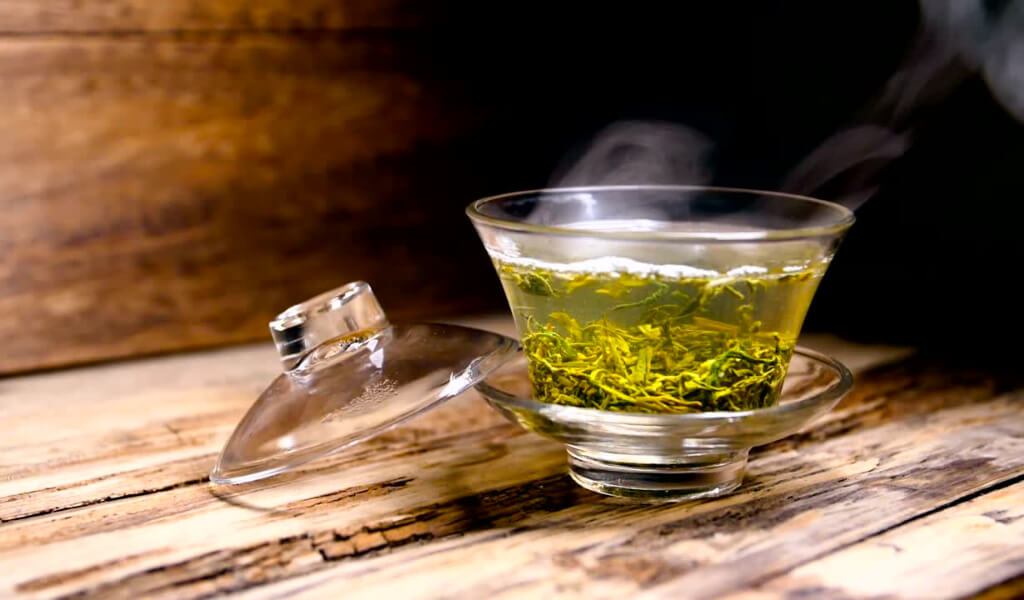Looking for a quick answer to the question, “does tea go bad?” You’ve landed in the right place!
In this piece, I’ve put together all you need to know about tea’s shelf life, complete with handy tips and notes for maintaining its freshness.
Does tea go bad?
Yes, can tea go bad. But it only spoils if it’s kept in the right conditions. It’s like an old friend – over time, it might lose some of its vigors, its brewed cup may seem a bit weaker, and the flavor might come off as stale rather than fresh.
But, the remarkable thing about tea is that it doesn’t have a set “expiration date,” making it unsafe to drink post a certain period.
The tea might lose its zest sooner than expected if not properly stored. Occasionally, when exposed to dampness or heat, tea might even spoil.
So, if you’re unsure whether your tea is still good, trust your senses. If it doesn’t seem right, swap it for a new batch and relish a vibrant, flavor-packed cup.
How long does tea last?
Generally, tea retains its freshness for around three to four months when kept in a bag. But storing it in an airtight tin or similar container can stay fresh for up to a year.
Reminds me of a time last year when I found a forgotten tin of Oolong in the back of my cupboard, and it still brewed a flavorful cup, even after ten months!
For the best tea experience, it’s crucial to store your tea correctly. Protect it from heat, light, air, and moisture to maintain its freshness. A well-stored tea can still be delicious even a year later.
How to store tea to keep it fresh?
Tea’s longevity depends on proper storage away from air, heat, light, and moisture. Opaque, airtight containers, like tea tins, are ideal for preserving your tea’s freshness.
Glass containers can work if kept in dark places. Storing tea properly enhances its shelf life, keeping it fresh and vibrant for up to two years.
Note: Tea storage tips include avoiding transparent containers and plastic bags. These can accelerate the degradation, turning your fresh tea into old tea quicker. Loose tea preservation also requires additional care, as they can absorb odors and moisture easily.
Store bulk tea in appropriate containers to preserve its quality. Avoid storing tea near sinks or stoves to maintain its freshness and aroma. Follow these tips for impeccable tea storage, ensuring a consistently fresh and flavorful brew!
How to tell if tea is still fresh
Confused about the freshness of your tea, and how long can tea be left out? You’re not alone. The common question is, “How to tell if tea is still fresh?” Here’s the scoop:
- First, pay attention to the aroma: Fresh tea should be fragrant, hinting at a tantalizing brew. If the aroma is fading, particularly in tea over a year old, consider a fresh tea purchase.
- Secondly, analyze the flavor: A vibrant tea brews up a robust, bright cup. If the flavor is dwindling, your tea might be losing its freshness. If you’re finding a dull taste in your tea sips, it might be a call for a tea freshness check.
- Color changes can also indicate aged tea: If your tea leaves have darkened, it might signal improper storage conditions like exposure to heat or light.
Keep in mind an aged tea is typically less flavorful rather than harmful. However, it can affect your tea-tasting experience, making it less enjoyable.
On the rare occasion, you notice an off taste or visible mold, avoid consuming it. Always rely on your judgment, particularly when tea tastes stale.
What to do with old tea
Are you scratching your head, wondering what to do with all that old tea? Whether it’s tea bags, loose tea leaves, or brewed tea that’s lost its luster, don’t worry! We have plenty of creative solutions that don’t involve sending your beloved brew to the trash can.
- Composting Gold: Tea leaves are nitrogen-rich, making them an excellent addition to compost piles. Not only does this help your plants, but it’s also a great way to recycle old tea.
- Creative Dye: Brew your old tea and use it as a natural watercolor for painting or to dye fabric and paper. It gives a unique, rustic touch!
- Odor Absorber: Old tea leaves are great at absorbing unpleasant smells. They’re handy in the kitchen, fridge, storage areas, or bathrooms. Say goodbye to unwanted odors!
- Garden Fertilizer: Sprinkle old tea leaves in your garden. Even past their expiry date, they still contain nutrients beneficial for plants.
- Luxurious Tea Bath: Steep those old tea bags for a relaxing and aromatic bath. Who knew bathing in tea could be so soothing?
- DIY Hair Mist and Air Freshener: With old tea, you can create a refreshing hair mist for hydrated hair, or an aromatic air freshener for your room or car. Your herbal tea, in particular, can work wonders here!
- Compost Supplement: Give your compost a boost with old tea bags. They’ll decompose and enrich your compost pile.
- Fire Starters: Dip old tea bags in melted candle wax to create your portable fire starters. It’s an unexpected but effective use!
Read More:
- Is It Okay to eat Fresh Tea Leaves?
- How to Reuse Tea Bags
- How many tea bags for a gallon of tea? Sweet, Iced and Sun tea
- Can you put cream in tea? The Ultimate Instructions For Newbies
- What is in tea? Unlocking the Secrets of Tea
Does bagged tea go bad
No, tea bags, just like their loose-leaf counterparts, don’t technically expire. These tiny parcels of joy, whether green or black, derived from the Camellia sinensis plant, have a remarkable shelf life, remaining in prime condition for two solid years.
Although their potency may persist for a bit, the flavors will gradually fade, akin to autumn’s final leaves. While tea can still brew a decent cup past its prime, you may detect a decline in quality.
But here’s a pro tip to elongate your tea consumption timeline – always store your tea bags in a cool, dry place, away from light, and definitely out of the refrigerator. Refrigerated tea bags can lose their essence quicker. Tea, after all, is all about the flavor, the aroma, and the experience!
Does tea need to be refrigerated
The answer is yes, it does. If you won’t enjoy your brewed tea right away, it’s best to store it in the fridge. Like any other food or beverage, room temperature is a breeding ground for bacteria, so leaving your brewed tea out for more than a few hours isn’t advisable.
To answer a few other common tea-related queries:
Does tea need to be refracted?
– Refraction isn’t necessary for tea, but proper brewing is crucial to bring out the best flavor.
How long can tea sit out without being refracted?
– Brewed tea should ideally be consumed within a few hours if left at room temperature.
How long can tea sit at room temperature?
– It’s best not to let it sit for more than a few hours to avoid bacterial growth.
Does brewed tea go bad in the fridge?
– Not immediately. When properly stored in the fridge, brewed tea lasts up to 48 hours.
To extend your tea consumption timeline and enjoy a safe and flavorful brew, treat your tea bags with some refrigeration care if you’re not indulging in them immediately.
Does Green Tea Go Bad?
The answer is yes. Compared to other types of tea, green tea, particularly the unoxidized variety like matcha powder, has a shorter shelf life due to its delicate nature. This especially applies to Japanese green teas, known for their vibrant deep green color and their fresh, grassy scent indicative of their freshness. Teas such as sencha and yours are prime examples.
It’s interesting to note that, historically, green tea’s vulnerability to time and conditions is part of the reason black tea came into existence. In ancient China, while the perishable green teas were mostly consumed locally, the more robust black teas were exported to distant lands like Europe and America.
Although loose green tea leaves demand more careful storage than tea bags or herbal teas, their exceptional freshness and distinctive flavor justify this extra effort. Be mindful of your green tea’s shelf life and monitor your brewed tea to maintain its optimal quality.
Does Loose Tea Go Bad?
Yes, it does, but it also depends on the type of tea. Light oolongs are fresh and slightly oxidized; ideally, you’d want to enjoy them within two years.
Meanwhile, dark oolongs and black teas have a slightly longer shelf life of around three years. After this, they start losing their taste and aromatic qualities.
I often perform a simple tea freshness test – if the aroma of your black tea is faint, it might have passed its prime. Upon brewing, its taste may turn flat and bitter, a far cry from the vibrant amber color and depth of flavor it should have.
Aged oolongs are an interesting lot. These can last a while, and their expiration dates can vary depending on the specific type. Keeping it around is fine, but do remember to sample it periodically to note how the taste evolves.
White teas are a unique case. They’re the least processed, keeping them closest to their original leaf state.
The Chinese have an adage that captures this: “One-year tea, three-year medicine, and seven-year treasure.”
White tea has been esteemed as a medicinal treasure in China for centuries. When stored properly, its taste and properties improve significantly with age.
It’s fascinating to track its transformation over time by maintaining a tea journal. Brew it after one, three, then seven years, and take note of the changes. Pay attention to the aroma, taste, and how it makes you feel.
Does iced tea go bad?
Yes, it absolutely can. Unlike its dry counterpart, once you’ve brewed your tea and turned it into an iced version, the clock starts ticking on its freshness. This is due to the introduction of water, which can become a breeding ground for bacteria if left unchecked.
Like all beverages, iced tea, especially when made at home, is affected by time and temperature. To keep it tasting its best, remember to refrigerate it promptly and aim to consume it within 24 hours. Beyond that, you might detect a change in its flavor.
When it comes to iced tea expiration, use your senses. If it smells off, appears cloudy, or has visible signs of mold, those are sure signs it’s time to make a fresh batch.
Cold brew tea storage follows similar guidelines. Although cold brew methods can slightly extend the life of your iced tea due to the lower temperatures involved in brewing, it’s still best consumed within a day or two.
When does bottled tea “expire”?
Technically, it doesn’t. Like its dry counterparts – packaged loose leaf tea and tea bags, bottled tea comes with a “Best If Used By” date. This is more of a quality indicator than an expiry date, suggesting the time frame during which the tea will maintain its optimal flavor. Usually, this duration can span anywhere from a few months to two years.
Let’s take Tejava as an example. It has a recommended shelf life of 12 months for optimal taste. On the other hand, Arizona iced tea products, whether in glass, cans, or PET, have a lifespan of 24 months, unopened from the day they’re produced. However, once you pop them open, you should aim to finish them off within 7-10 days if kept in the fridge, or 2-4 days if left out.
So, when you want to quench your thirst with bottled tea, remember to check the date stamped on the bottle!
Thanks from Spiritea Drinks
FAQs
How long can sweet tea sit out?
Sweet tea can sit out for up to 8 hours but is best consumed fresh. Beyond this time, it may develop bacteria, impacting its quality and safety.
How long can tea sit out without being refrigerated?
Tea can sit at room temperature for a maximum of 8 hours. After this, the quality starts to decline, and it may become a breeding ground for bacteria.
Can sweet tea go bad?
Sweet tea can go bad if left out for more than 8 hours. It’s a breeding ground for bacteria, making it unsafe to consume.
Can you drink tea that’s been sitting out?
It’s okay to drink tea that’s been sitting out for up to 8 hours. After this, bacteria growth makes it unsafe to consume.
How long does brewed tea last unrefrigerated?
Brewed tea lasts up to 8 hours at room temperature. In the fridge, it can last for 2-5 days.
Can you freeze tea leaves?
Yes, you can freeze tea leaves. Freezing helps preserve the freshness and flavor of the tea leaves.
Does iced tea need to be refrigerated?
Iced tea doesn’t need to be refrigerated but refrigeration helps extend its freshness. If left unrefrigerated, consume within 8 hours.
Does tea expire if sealed?
Tea doesn’t expire if sealed but has a “Best if Used By” date. The quality begins to deteriorate after this date, but it’s still safe to drink.
How long can you keep tea bags in water?
Tea bags should ideally not be kept in water for more than 5 minutes. The tea can become too strong and bitter if left in water for too long.
Do lipton tea bags go bad?
Lipton tea bags don’t go bad but have a “Best if Used By” date. After this, the tea may lose its flavor and aroma.
Does herbal tea expire?
Herbal tea doesn’t expire but its flavor and aroma diminish over time. Check the “Best if Used By” date for optimal quality.
How long do tea bags last once open?
Once opened, tea bags last for about 2 years if stored properly. After this, they may lose their flavor and aroma.
Can I drink 10 year old tea bags?
No, drinking tea that expired 10 years ago is not recommended. Like many other foods and beverages, tea cannot be kept forever. Over time, the tea’s flavor diminishes, and so do its health benefits.
I’m Shanna, creator of Spiritea Drinks. I’m all about teaching people to grow their own food, tea, cook what they harvest, and eat with the seasons.





